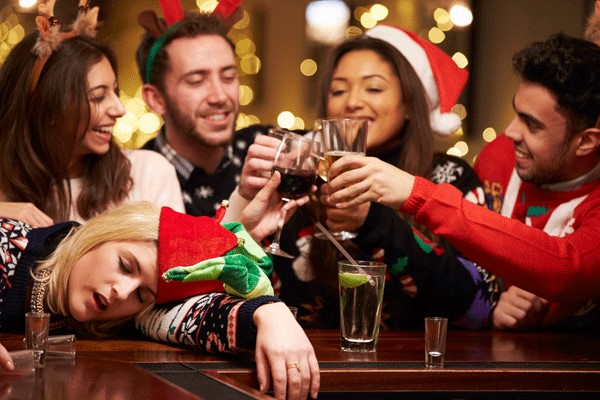By Bahle Gama
IT is that time of the year when imbibing is at its peak and people do so without considering the repercussions.
Alcohol consumption is the drinking of beverages containing ethyl alcohol.
Alcoholic beverages are consumed largely for their physiological and psychological effects, but they are often consumed within specific social contexts and may even be a part of religious practices.
RELATED: Red Cross delivers Christmas goodies worth E70 000 at Silele
According to the National Institute on Alcohol Abuse and Alcoholism (NIAAA), there is a noticeable increase in alcohol consumption during holidays, such as Christmas and New Year’s.
The allure of festive drinks and social gatherings often leads to more frequent and heavier drinking.
The NIAAA reports that there are significant gender disparities in holiday drinking. While both men and women partake in festive drinking,
studies suggest that men are more likely to engage in risky behaviours and consume larger quantities of alcohol during the holidays.
Women, on the other hand, may be at a greater risk of adverse health effects due to their typically lower tolerance for alcohol.
Meanwhile, teenagers and young adults are particularly susceptible to the hazards of holiday drinking. Inexperienced drinkers may overindulge, leading to accidents, impaired judgment, and risky behaviours.
Adolescents are also at risk of long-term alcohol-related issues, such as addiction and cognitive impairments, when holiday drinking patterns are established at a young age.
“Binge drinking is a significant concern during the holidays, as individuals may consume excessive amounts of alcohol in a short period. This behaviour can lead to alcohol poisoning, accidents, and impaired decision-making.”
The NIAAA further states that binge drinking is associated with an increased risk of injuries, violence, and alcohol dependence.
Large amounts of alcohol consumed in a very short period can result in life-threatening alcohol poisoning. Symptoms include confusion, vomiting, slow or irregular breathing, hypothermia, and, in severe cases, coma or death. Emergency medical attention is critical in such situations.
Certain individuals are more vulnerable to the hazards of holiday drinking, including those with a history of alcoholism, individuals with mental health disorders, and people taking medications that interact negatively with alcohol.
Also, alcohol-dependent individuals may find it challenging to control their consumption during the holidays, leading to a heightened risk of relapse.
According to Psychological Counsellor Meandrie Bridges, from Journey Recovery and Wellness Centre, families can manage alcohol use and create a safe, enjoyable environment for everyone this holiday season.
RELATED: E86mln for over 43000 Civil Servants’ sweetener
She stated that as the festive season approaches, excitement builds around reconnecting with family, catching up in the early hours, and indulging in family traditions.
However, alcohol abuse can quickly disrupt even the most carefully planned gatherings, leading to impaired judgment, emotional instability, increased conflict, and risky behaviours such as driving under the influence (DUI).
If not managed effectively, these situations can leave lasting emotional scars, including trauma and post-traumatic stress disorder (PTSD).
“As the festive season approaches, families are preparing for reunions and celebrations. However, for many, managing alcohol consumption during these gatherings can be a challenge.
Alcohol abuse can negatively impact family dynamics, leading to emotional instability, conflict, and even lasting trauma,” Bridges said.
She further highlighted the importance of respecting established boundaries around alcohol while focusing on positive interactions, shared values, and family traditions to unify everyone.
“Having the support of the matriarch or patriarch greatly enhances these efforts, as their influence typically garners wider compliance and makes sustainable solutions more attainable,” she added.
According to Bridges, vigilance is required in the following ways:
Before and During the Gathering:
- Set Clear Expectations: Discuss boundaries and expectations with family members ahead of time to ensure everyone is on the same page.
- Designate a Sober Host/Champion: Choose someone responsible for ensuring everyone’s safety while remaining sober throughout the event.
- Plan Activities: Organize fun activities that don’t involve substance use, such as games or outdoor adventures, to keep everyone engaged and connected.
During the Gathering:
- Monitor Alcohol Use: Keep an eye on the amount of alcohol being consumed and step in if needed to prevent escalation.
- Offer a Variety of Non-Alcoholic Beverages: Provide tasty, non-alcoholic options and encourage guests to drink them.
- Watch for Signs of Impairment: Be alert to signs like slurred speech, stumbling, or aggressive behaviour, and intervene early to prevent further issues.
- Intervene Early: If someone shows signs of impairment, address the situation before it escalates, offering support where necessary.
